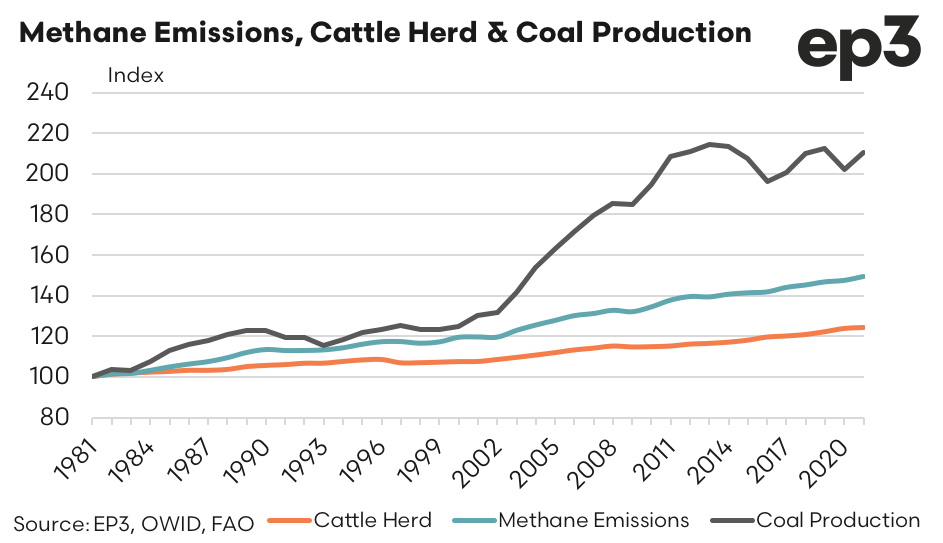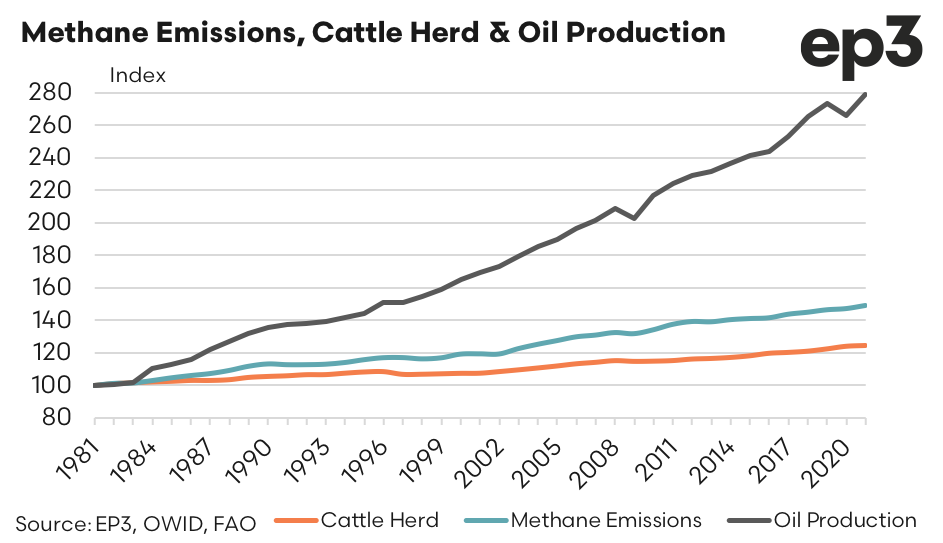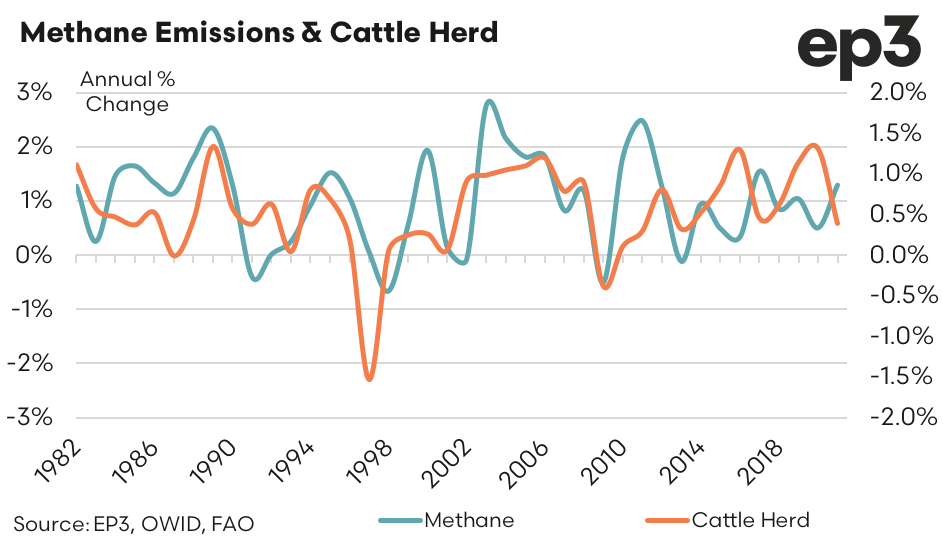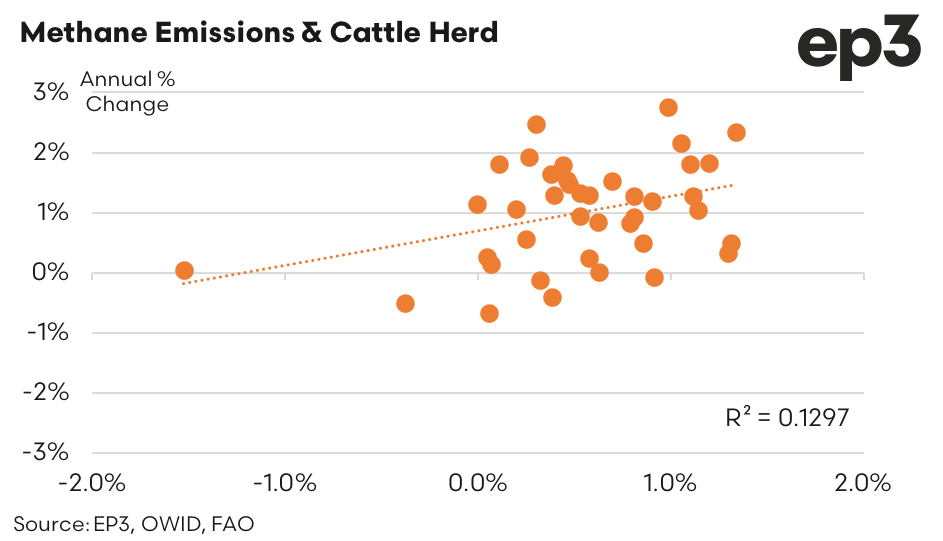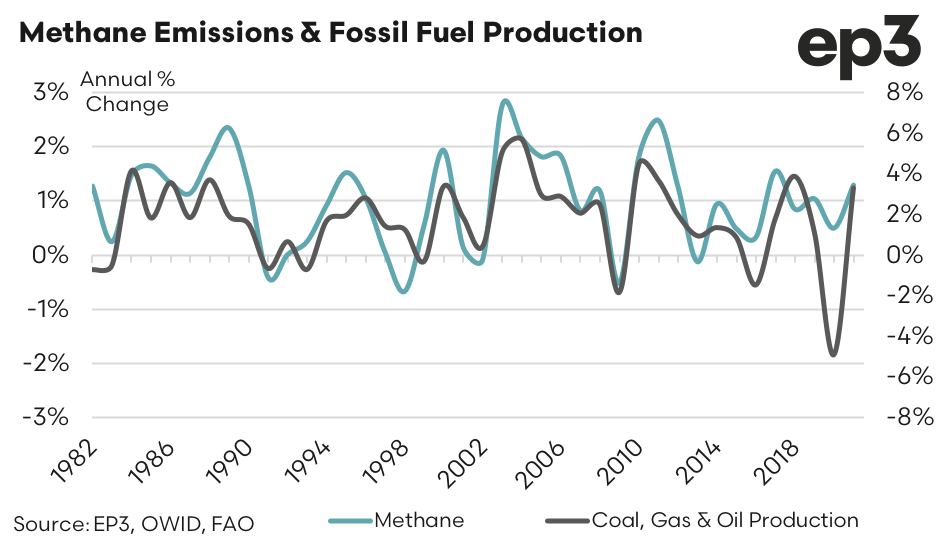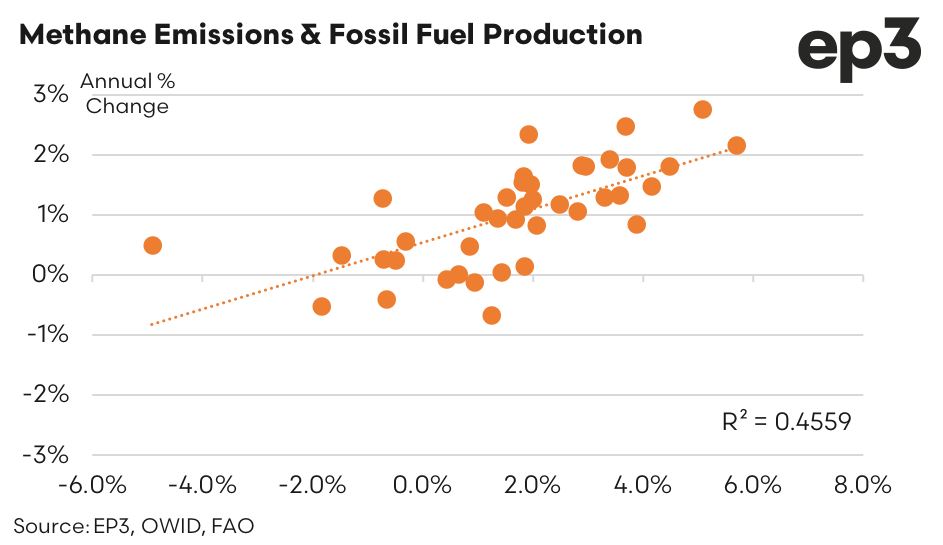But the cows!
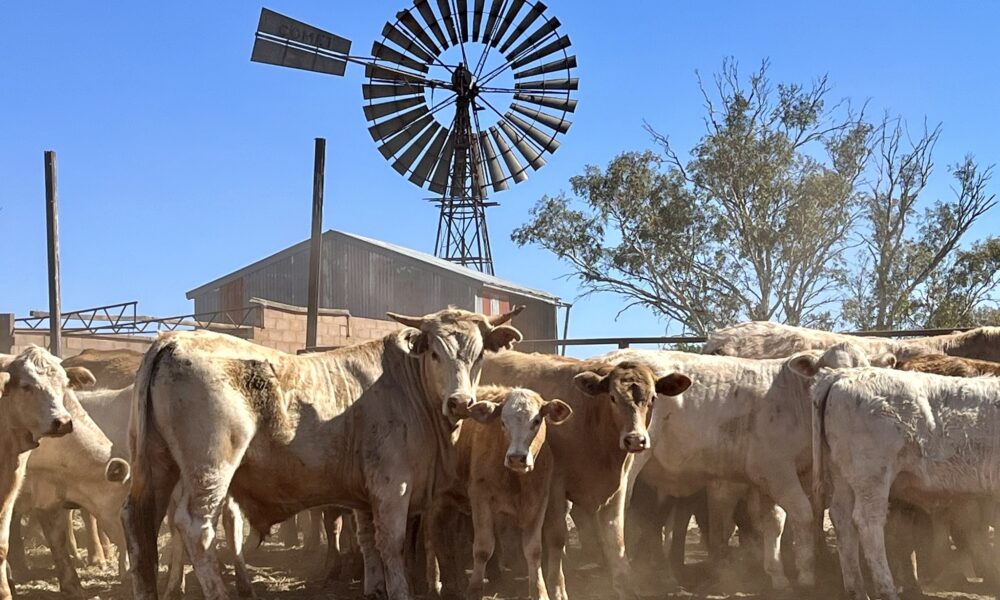
The Snapshot
- Cattle emit methane, but so does the production of fossil fuels such as coal, oil and gas.
- The growth in the cattle herd, doesn’t match the higher growth in methane emissions since the 1980s.
- Meanwhile, an index of fossil fuel production growth (for all three types) has exceeded the index growth in methane emissions.
- Annual percentage changes to the global herd versus changes to methane emissions only has an r-squared correlation of 0.1297.
- However, annual percentage change to fossil fuel production has a much higher correlation to annual methane emission changes of 0.4559.
- Globally livestock emissions (of all GHG types) account for less than 6% of total emissions. In stark contrast, the energy and transport sector account for nearly 76%.
The Detail
We all know cattle emit methane, anyone that spends time with them can attest to this! But are they really the green house gas (GHG) emissions culprit they are made out to be? A look at the data on the global cattle herd, global methane emissions and the global production of fossil fuels (oil, gas and coal) since the 1980s suggest that there could be another set of significant contributors besides cattle.
An index of cattle herd numbers versus methane emissions and the production of the three fossil fuels highlights that while all items have shown growth over the past four decades it has been the production of fossil fuels that has been growing at a much faster pace than the global herd. Indeed, herd growth doesn’t quite keep up with methane emissions growth at all, based on the index, so there must be something else contributing to the additional methane being emitted other than cattle. Unless cattle are somehow emitting more methane these days? I’m not a biologist nor an expert in GHG emissions but I suspect that they are emitting roughly the same methane as they always have.
If we delve a little more into the data and look at annual percentage change in the cattle herd and methane emissions the picture gets more interesting. A chart showing the annual change as a trend line seems to suggest for the most part that increased global methane emissions roughly correspond to times when the global cattle herd increases and methane emissions declines when the cattle herd drops.
However, upon closer inspection you can see years when the annual change to these two data sets do not match up. There are several periods when they move in the opposite directions. A clearer measure of how closely annual changes are aligned between the cattle herd and methane emissions can be shown by a scatter plot, which also includes a statistical measure of correlation (the r-squared calculation). This r-squared shows that on an annual percentage change basis the cattle herd growth/decline is not very correlated to methane emissions with a correlation coefficient of just 0.1297.
Similar trend analysis of the combined global fossil fuel production (gas, coal and oil) versus global methane emissions appears to show a much closer trend with annual percentage increases/decreases in the two items matching more frequently, at least to the eye. However, the scatter plot and measure of r-squared removes any doubt with annual change to methane emissions displaying a much higher correlation coefficient to fossil fuel production levels than to the cattle herd of 0.4559
Cattle emit methane, that isn’t in dispute. The sector needs to try to limit emission any way possible and it is actively trying to achieve this, particularly in Australia where a Meat & Livestock Australia 2020 report outlined that the Australian red meat industry has reduced emissions by 65% since 2005.
The science also tells us that fossil fuel production also emits methane, among with other GHG emissions. The data outlined in this article seems to suggest that that link between methane emissions and fossil fuel production is stronger than the link to the cattle herd, so what are the fossil fuel companies doing to help reduce their emissions?
After all livestock production globally accounts for less than 6% of all GHG emissions but the energy & transport sector account for nearly 76% of all GHG emissions, according to analysis undertaken by the World Resources Institute.
Article image supplied with permission by Gillian Fennel.


